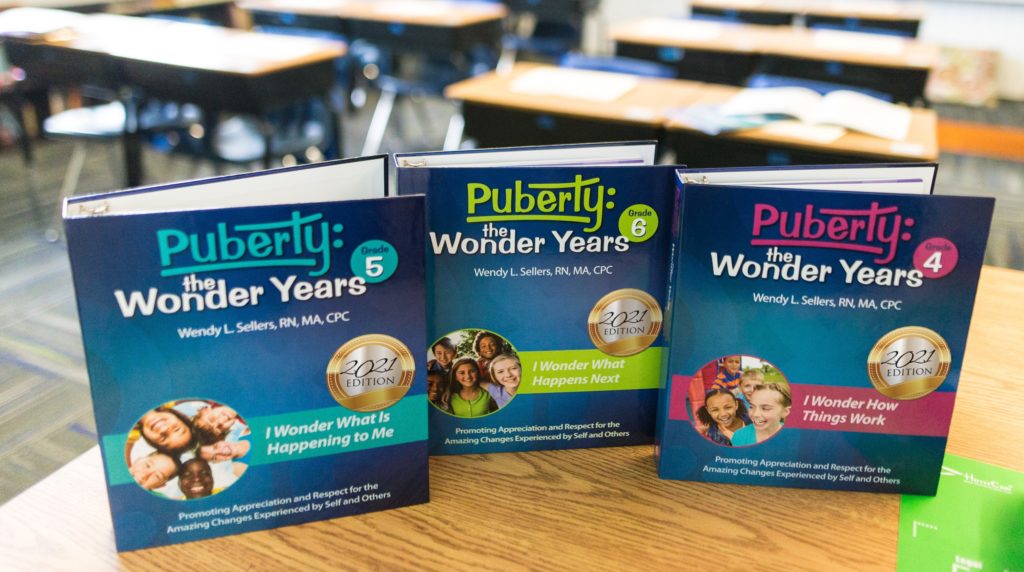- Children are maturing physically at younger ages. When children notice body changes, and don’t understand them as normal events of puberty, they can become frightened and think something is wrong with them.
- Young people who learn about puberty and sex from both their parents and their school are less likely to have sexual intercourse than young people who learn about it from only one source.
- Young people get mixed messages about sex. Sex is still considered a dirty word and a taboo subject, yet sex is everywhere. It appears on the internet, movies, and television shows, is used to sell products, and is the topic of jokes and conversations.
- Our young people are receiving distorted messages about sexuality and sex from the media, entertainers, music, and their peers. In a year of television viewing, a young person sees more than 9,000 scenes of sexual behavior, 80% of which occur outside a marriage relationship. Often, sex and violence are combined in popular music.
- Intimate sexual behavior is the primary mode of transmission of HIV infection.
- Sexually transmitted diseases continue to spread at alarming rates. Seventy-five percent of all sexually transmitted diseases are found in young people aged 15 to 24.
- Effective sex education programs actually reduce teen pregnancies, delay the onset of sexual activity, and increase the use of condoms in sexually active youths.
- Parents, schools, and communities are most effective if they collaborate in sending health messages to children.

Order Puberty: The Wonder Years.
Thank you for your interest in Puberty: The Wonder Years. The curriculum is based on the following research and best practice:
- Characteristics of Effective Curriculum-Based Programs, “Emerging Answers 2007,” Dr. Douglas Kirby
- Health Belief Model (adapted), based on work from the University of Michigan
- Skills-Based Instruction strategy
- Social Learning Theory
- Promotion of parent-child communication and its impact on sexual activity
In 2007, Dr. Kirby expanded his years of research on characteristics of effective curriculum-based sex education programs in Emerging Answers 2007. Puberty: The Wonder Years has many of the characteristics of effective programs he identified. Characteristics 1, 2, 4, 5, 6, 7, 8, 9, 10, 11, 12, 13 are strong. Characteristics 14-17 are the purview of the implementers.
